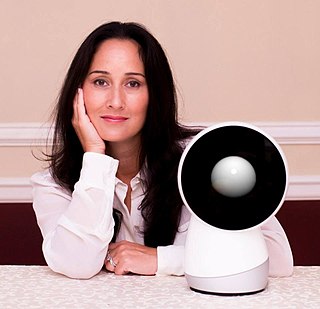A Quote by Peter Singer
Most of the robots being developed for home use are functional in design - Gecko's homecare robot looks rather like the Star Wars robot R2-D2. Honda and Sony are designing robots that look more like the same movie's 'android' C-3PO.
Related Quotes
Robots are important also. If I don my pure-scientist hat, I would say just send robots; I'll stay down here and get the data. But nobody's ever given a parade for a robot. Nobody's ever named a high school after a robot. So when I don my public-educator hat, I have to recognize the elements of exploration that excite people. It's not only the discoveries and the beautiful photos that come down from the heavens; it's the vicarious participation in discovery itself.
Some people think that, inevitably, every robot that does any task is a bad thing for the human race, because it could be taking a job away. But that isn't necessarily true. You can also think of the robot as making a person more productive and enabling people to do things that are currently economically infeasible. But a person plus a robot or a fleet of robots could do things that would be really useful.
In the smart home of the future, there should be a robot designed to talk to you. With enough display technology, connectivity, and voice recognition, this human-interface robot or head-of-household robot will serve as a portal to the digital domain. It becomes your interface to your robot-enabled home.




































